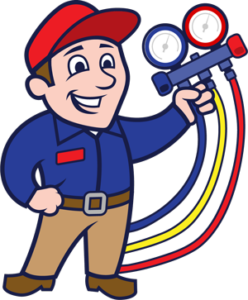Getting Your Boiler Ready for the Upcoming Seasons

The weather is still warm, the year has gone by quickly, but whether you like it or not, winter is just around the corner! Is your boiler ready? Heating systems need regular maintenance to run efficiently, and it’s important to do this maintenance before the season begins. You’d hate to be stuck in the middle of winter with no heat, so take these steps to make sure your boiler is ready for winter weather.
- Have your heating system inspected by a professional. During this inspection, you can expect the technician to:
- Drain and flush the boiler, cleaning any soot and scale and examining the boiler for corrosion or damage.
- Clean and adjust fuel-burning equipment.
- Inspect all controls and fuel safety shutoff valves to make sure they’re working properly.
- Lubricate mechanical components.
- Disassemble, clean, recondition, and reassemble low water cutoff and water feeding devices.
- Visually evaluate the tank, cold water supply line, hot water outlet line, and connections, inspecting for signs of water leaks or deterioration.
- Examine gas supply line and connections, looking for evidence of damage or leaks.
- Remove mineral sediment by draining the boiler tank, then refill.
- Ensure that the boiler vent pipe is intact and unobstructed by checking its condition.
- Remove, clean, and re-install the main gas burners.
- Verify that the electronic igniter is working properly or clean the pilot light assembly.
- Ensure the circulation pump motor is lubricated.
- Start the system, observing the burner flame to make sure it’s the proper height and color.
- Verify that the system pressure and water temperature conform to the manufacturer’s specifications.
- Check the expansion tank’s pressure charge, draining excess water or recharging with air if necessary.
- Inspect pressure relief valves, testing to make sure they operate properly and have no leaks.
- Use individual bleed screws to bleed air from all radiators in the house.
- Once the pro has tuned up your heating system, there are still tasks to accomplish. Before starting it up for the first time in the winter, you’ll still need to perform certain steps.
- Use cleaning brushes or a vacuum to make sure boiler components are clean.
- Double-check the boiler’s water to make sure it has the appropriate amount.
- Make sure your stack dampers are open so that combustion byproducts can safely vent out of the system.
- Remove anything that may be obstructing the boiler, including items stored in close proximity.
- Check the furnace and flue passes for fuel accumulation, in order to make sure the fuel will feed properly through the system.
- Make sure the manual fuel valves are open.
- Once you’ve completed the above steps, close the operating switch and continue the normal start-up procedure. The appropriate sequence is typically to have them close the operating controls and interlocks, start the fans and purge the boiler, start the igniter, prove the ignition flame for 10 seconds, turn on the main fuel valves, get the main flame established and monitor it, turn off the ignition, adjust the controls to meet demand, and operate the heater normally. Read your owner’s manual before beginning, to ensure that you’re following the right procedure for your particular model.
- Know how to identify signs of a boiler problem. After you’ve started it up, it’s important to watch for signs of trouble. Catching problems early can mean the difference between a minor repair and a major expense.
- If your boiler isn’t producing enough heat, it could be a sign that the water levels are incorrect or mineral deposits have built up in your system. You can check the boiler’s indicator to determine the temperature and water levels, changing it if it’s too low, but if there’s a buildup of minerals you need to call a professional.
- If your boiler is electric, the problem may be with the thermocouple sensor might be the problem. This could be the result of the pilot light going out.
- Electric boilers can also have water leaks. When water leaks, the boiler won’t work correctly because of a decrease in water pressure.
- Other symptoms of a boiler problem that require a professional include: smells of something burning, like metal, oil, or plastic, unusual noises, a lack of or no hot water in a combination system, high energy bills, boiler shutting off for no reason.
Whether you need annual maintenance or you have a problem with your heating system, contact Barstow and Sons for help. As a full-service heating and cooling service company, we’ve been providing high-quality service to customers throughout Anne Arundel County, Severna Park, Pasadena, and Annapolis since 1980. We’ve built a reputation for our dedication to excellence, and we’re here for our customers 24 hours a day, 7 days a week. Call (410) 777-9148 to learn more or contact us through our website.

